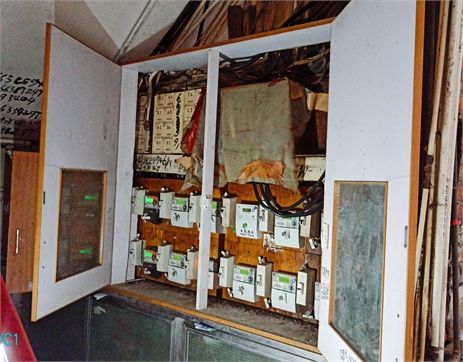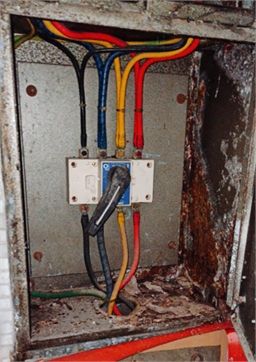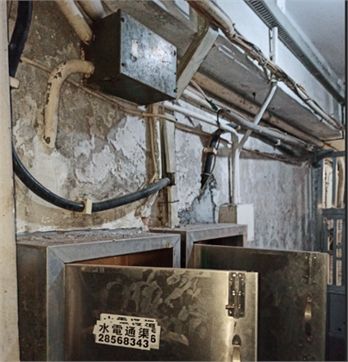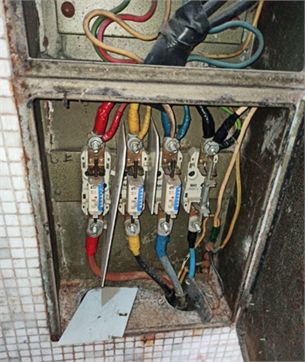
CEM launches “Safety Upgrade Subsidy Program for Communal Electrical Installations in Low-rise Aging Buildings” to eliminate potential safety hazards for residents
3 March 2021, Macau
The communal electrical installations in many buildings in Macau have potential safety hazards due to a long-term lack of regular and proper maintenance and repairs, especially those “three-nil” buildings (i.e. without management entities, residents’ organizations and property management companies) aged over 30 years with less than seven storeys. It is more complicated and difficult to raise funds from property owners for maintenance.
In view of this, CEM shareholders contributed MOP30 million in 2020 to establish a one-off “Safety Upgrade Subsidy Program for Communal Electrical Installations in Low-rise Aging Buildings” to subsidize the upgrade of communal electrical installations in low-rise aging buildings with immediate danger to eliminate potential safety hazards. CEM will leverage its professional knowledge and ethics to conduct assessment and screen eligible buildings for the subsidy under the principle of fairness, impartiality and rigor. The upgrade projects will be carried out by contractors commissioned by CEM. CEM will be responsible for technical supervision. Each case’s subsidy is capped at 80% of the overall project costs and the remaining costs shall be borne by the property owners. The fund will automatically cease and will not continue after it is used up. It is estimated that 150 to 200 buildings can be subsidized for their upgrade of communal electrical installations in three years, benefiting about 3,000 households. CEM has launched the pilot project and sent out invitation letters to several buildings recently.
The “Safety Upgrade Subsidy Program for Communal Electrical Installations in Low-rise Aging Buildings” will take the protection of public safety as the principle. The priority will be given to high-risk cases with immediate electrical hazards as well as buildings in low-lying areas that are affected by storm surges or identified as not complying with CEM’s existing technical specifications.
To be eligible for the subsidy, the communal electrical installations of the buildings (excluding economic housing and social housing) have to be rated by CEM as dangerous with urgent need for upgrade and satisfy the following requirements: residential buildings (excluding shops) aged 30 years or above, with no more than seven storeys and with no lifts, as well as receiving no subsidies related to communal electrical installations from the Housing Bureau (IHM) within the past three years. Scope of the subsidy includes the upgrade of communal electrical installations, excluding the part from behind-the-meter to customers’ premises and any end-use electrical equipment.
Every year, although CEM has been raising awareness of property owners through different channels, such as bill envelopes, leaflets, seminars etc., that customers’ communal electrical installations in buildings are collectively owned by property owners, who must take the responsibility for regular maintenance to ensure household electrical safety within the building, no significant improvement has been seen. Accidents related to building’s communal electrical installations such as tripping, power outages, fires and even explosions, still occurred from time to time.
On the other hand, communal electrical installations of many buildings in low-lying areas were severely flooded when Typhoon Hato hit the city. Most damaged installations have not been properly repaired or replaced, resulting in serious corrosion and aging, and the worsen situation has posted a threat to the lives of residents. Moreover, communal electrical installations are usually installed on the ground floor near the building entrance. To prevent flooding from affecting the power supply, the installations must be raised to reduce the impact of flooding in the long run. Upgrading the installations can effectively and comprehensively improve disaster prevention and resilience.
For details of Subsidy Program, please visit CEM website at www.cem-macau.com.
 Login
Login



